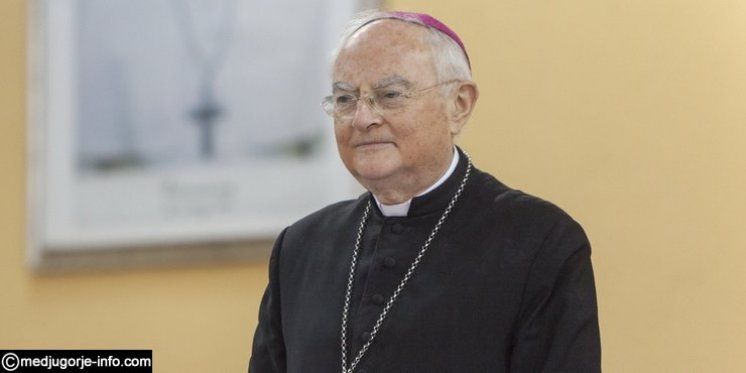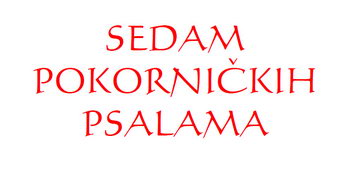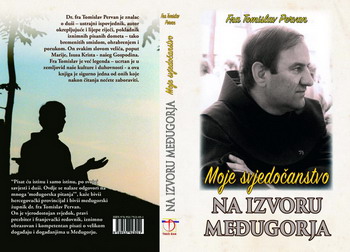In the middle of high school he decided to go to a medical school and in 1960 enrolled in the Physicians’ Faculty of the Warsaw Academy of Medicine. As a student he chaired the University Colleagues’ Court of the Polish Students’ Union. He completed his medical studies in 1966 and the following two years worked as an assistant lecturer in the Department of Correct Anatomy. In 1969 he worked as the head physician of a hospital Internal Medicine Ward.
He admits that his vocation to the priesthood was unexpected, a sudden epiphany. Responding to the Divine call, in 1969 as a medical doctor he entered the Pallottine Seminary in Ołtarzew. In 1970 he took his first profession in the order and became a member of the Society of the Catholic Apostolate (Pallottines). As a seminarian he co-founded the Mission Group (in operation at the Pallottine Seminary to date). Ordained to the priesthood on 16 June 1974 by Bishop Władysław Miziołek. Fr. Henryk Hoser left for a mission in Rwanda one year after his ordination, having prepared himself for missionary work in Africa in France; in Paris he attended courses of the French language and of tropical medicine.
“I have never regretted becoming a physician and have never doubted my priestly vocation and consecrated life”, observes Archbishop Hoser. At the same time he admits that “both these fields are ‘absorbing’ and ‘jealous’, require exclusivity and cannot be handled in splendid isolation”. For 21 years Fr. Hoser combined the two fields as a missionary in Rwanda and Zaire. He started off as a curate in Kigali, working at the same time the district hospital in Kabgayi and the university hospital in Butare.
In 1978 he founded a Gikondo Health Centre in Kigali, which he led for 17 years, and the Rwandan Family Action for the dissemination of natural methods of family planning. He was also the head of the Association of Medical Centres in Kigali and the head of the epidemiological centre for AIDS monitoring. He was a parish priest, chaplain of families and formation sessions for the apostleship of secular communications media. For a few years a secretary of the commission of the local bishops’ conference for health and of the commission for the family.
In 1981 Fr. Hoser became the superior of the Missionary Delegation of the Pallottines in Rwanda, and seven years later the first superior of the newly established Regia of Rwanda, Zaire ad Belgium (1988–1991). A former chairperson of the Conference of Superiors of Religious Orders in Rwanda.
In 1994 he participated in the Special Synod for Africa as an expert on the issues of development and family problems. That very year John Paul II made him an apostolic visitor in Rwanda and eight neighbouring countries. During the war between the Hutu and Tutsi tribes in April 1994, the papal nuncio had to leave Rwanda and Fr. Hoser as an apostolic visitor had the prerogatives of the nuncio to visit the dioceses and appoint apostolic administrators for the vacant dioceses, helping the bishops and the clergy to resume pastoral work.
Three bishops were killed at that time and the fourth one left for Congo, unable to return. 4 out of 9 dioceses were vacant. Fr. Hoser was entrusted with offering assistance to the local Church in overcoming the tragedy of the civil war. At the end of 1994 Fr. Hoser was assisted by a chargé d’affaire of the nunciature, whose role was to follow the social and political issues in Rwanda, and Fr. Hoser was able to focus solely on pastoral duties. In 1996 the apostolic nuncio, another Pole, Archbishop Juliusz Janusz, was finally appointed. Fr. Hoser remained for a few months in the nunciature as the nuncio’s aide and collaborator. Having completed his mission as a visitor, he left Rwanda. Commenting on the trials of Catholic priests and nuns, he stressed that there are many question marks about them and that prison sentences were granted to both criminals and innocent people, which made these trials “political”.
Upon his return to Europe, he was the superior of the Regia of the Divine Mercy in France (in the years 1996–2003) and a member of the Council for the Missions of the French Conference of Superiors of Religious Orders. At this time, on behalf of the Congregation for the Evangelisation of Peoples, he visited a number of times seminaries in the mission countries. In 1998 he led a four-day retreat for Polish bishops in Jasna Góra. Since 2004 he was the superior of the Pallottine mission work in Brussels and a pastor in the EU structures.
In 2001 he co-founded the African Federation of the Family Action and became its secretary. In collaboration with Georgetown University, Washington, D.C., he developed an extended lactation method LAM–9.
On 22 January 2005 John Paul II appointed Fr. Henryk Hoser adjunct secretary of the Congregation for the Evangelization of Peoples and president of the Pontifical Mission Societies. He also appointed him a titular archbishop of Tepelte.
Interestingly, the nomination for the Pallottine was announced on the memorial of the founder of the order, St. Vincent Pallotti, and Fr. Hoser is the first Polish Pallottine to be made archbishop. He was consecrated in Rome on 19 March 2005. Archbishop Hoser’s episcopal motto comes from the first Epistle of St. John: Maior est Deus (God is Greater). The bishop’s coat of arms features a flame of faith and love, both of which he acquired in his family home and in the family of the order. Another element of the crest is a star, a symbol of evangelisation, of preaching the Gospel till the ends of the earth.
As deputy secretary of the Congregation for the Evangelisation of Peoples, together with the secretary he was the closest collaborator of the cardinal prefect presiding over the congregation. At the same time he was ex officio the chairman of the Pontifical Mission Societies. This pontifical institution is in the service of the Catholic Church and promotes and collaborates with the ad gentes missions. The Pontifical Mission Societies is composed of the following: Pontifical Society for the Promotion of the Faith, Pontifical Society of St. Peter the Apostle, Pontifical Mission Society of Children, and the Pontifical Mission Union. Archbishop Henryk Hoser SAC was the second Pole in the Congregation at such a high-ranking position, following Cardinal Mieczysław Ledóchowski, who in the period 1892-1902 was the prefect of this Congregation.
On 24 May 2008 Benedict XVI appointed Archbishop Henryk Hoser Bishop of Warsaw Praga.
Within the Polish Bishops’ Conference he is chairman of a Team of Experts for Bioethics. A member of the Pastoral Commission, Commission for the Missions and the Council for the Family. A member of the Work of the New Millennium Foundation Council. In 2014 elected to the Permanent Council of the Polish Bishops’ Conference. In 2009 Benedict XVI appointed him consultor of the Congregation for the Evangelisation of Peoples. That very year the Pope appointed him a member of the special Second Synod for Africa. In 2015 he took part in the Synod of Bishops for the Family as one of three Polish members of the Episcopate besides Archbishop Stanisław Gądecki and Bishop Jan Wątroba, Bishop of Rzeszów and chairman of the Polish Bishops’ Conference Council for the Family.








